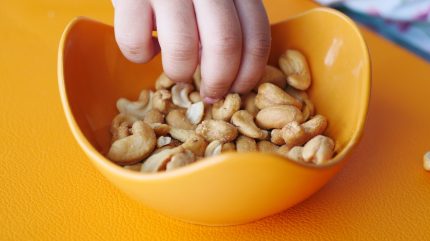
The European Commission (EC) has approved the extension of Stallergenes Greer’s Palforzia (defatted powder of Arachis hypogaea L., semen (peanut)) for treatment of peanut allergy in patients aged one to three years, permitting earlier treatment for one of the most common food allergies.
The extension to the marketing authorisation means paediatric patients aged up to 17 years with a confirmed diagnosis of peanut allergy can use the immunotherapy. It can also be used in adults aged 18 and older when combined with a peanut-avoidant diet.

Discover B2B Marketing That Performs
Combine business intelligence and editorial excellence to reach engaged professionals across 36 leading media platforms.
The approval in Europe follows the same extension made by the US Food and Drug Administration (FDA) in July 2024, meaning Palforzia is the only oral immunotherapy approved for peanut allergy-affected toddlers in the two regions. The drug was first approved in Europe and the US in 2020.
The EC based its decision on data from the Phase III POSEIDON study (NCT03736447), which met its primary endpoint of the percentage of subjects who could tolerate a high dose of peanuts in a food challenge. Secondary efficacy endpoints were also met.
Allergy biopharma company Stallergenes Greer acquired Palforzia from Nestle in September 2023 for an undisclosed amount. Nestle itself had acquired the drug in a $2.1bn buyout of Aimunne Therapeutics, the peanut allergy treatment’s original developer. Nestle’s decision to sell Palforzia stemmed from slow uptake and weak sales.
More than 17 million people in Europe are estimated to have a peanut allergy, and it is one of the most common food allergies in children. AllergyUK estimates that one in 40 breast-fed infants develop a peanut allergy.

US Tariffs are shifting - will you react or anticipate?
Don’t let policy changes catch you off guard. Stay proactive with real-time data and expert analysis.
By GlobalDataTaken as a powder in capsules or sachets, Palforzia works by gradually increasing the body’s ability to cope with small amounts of peanuts in a process called desensitisation. The drug has been shown to reduce the severity of allergic reactions after peanut exposure, though it does not treat the symptoms of the allergy itself, meaning it should not be taken during an allergic reaction. The extension to toddlers is an important milestone because it means treatment can be initiated at an earlier age.
Dr Katharina Blümchen, professor at the University of Medicine of Frankfurt’s paediatric and adolescent medicine clinic, said: “Early intervention is crucial to reduce the risks of accidental exposure and may be very important in improving long-term outcomes. The approval of Palforzia for toddlers represents for the medical community a meaningful advancement in managing allergy at a pivotal stage in a child’s development.”
Also in the allergy treatment space is Roche and Novartis’ Xolair (omalizumab), which gained supplemental FDA approval in February 2024. It is the first medicine approved to reduce allergic reactions after accidental exposure to foods. Common foods that trigger allergies such as peanuts, milk, and wheat are covered by the drug.




